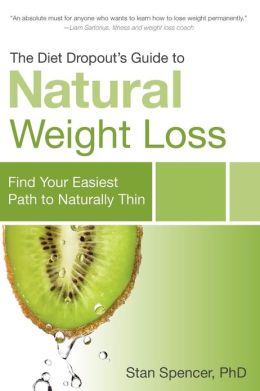You will learn:
The truth about common weight loss myths
And much more
With this book you will create your own weight loss plan—your easiest path to naturally thin. Take your first steps on the path today and leave dieting behind forever.
OK, so this is one of those books that I tried to win from Goodreads - many, many times. I finally gave up on entering after I lost something like 5 or 6 times. Imagine my shock when I realized my library system had picked it up! I would get to read it/see it after all, and I didn't have to keep being a "loser".
So this is definitely a different diet book - there's no "diet" here. The author provides the basic weight loss advice that we've been told for years, the one we really don't want to hear since we're looking for an easy fix: eat less overall, make healthier food choices, and get some exercise. Really, that's it! But it's laid out in a nice, easy-to-digest manner (no pun intended). Short chapters that explain why we are probably overweight now (changes to how food is prepared in conjunction with a much more sedentary lifestyle), how to handle cravings and stress, and how to start losing weight. There's a few basic recipes at the end of the book, and that's it.
So why did I enjoy this? Well, because I think it's the sort of thing that would actually be worth the money to have at home. It's inexpensive at $11 for the physical book, even less for the e-book ($2.99 for the Kindle version). It's got a little bit of cheerleading for the reader, but not so much that it's a turn-off. There's great advice about going slowly, how to add a healthy choice to each meal, how to get just a bit more exercise, etc. And lots of comments about how you shouldn't just throw in the towel if you have an "off day" or even an "off" meal. The doctor wisely reminds the reader that this is a life-style change, that it should be looked at for the long haul, and so mistakes/slips are going to be part of the process. That's probably the downfall of a lot of dieters - giving up just because they eat a cookie (or 20) or skip exercise one day (or a week).
I'm very glad to see this in our library, and I'll be recommending it to our patrons. And yes, I think I just might be buying a copy of this for myself.





